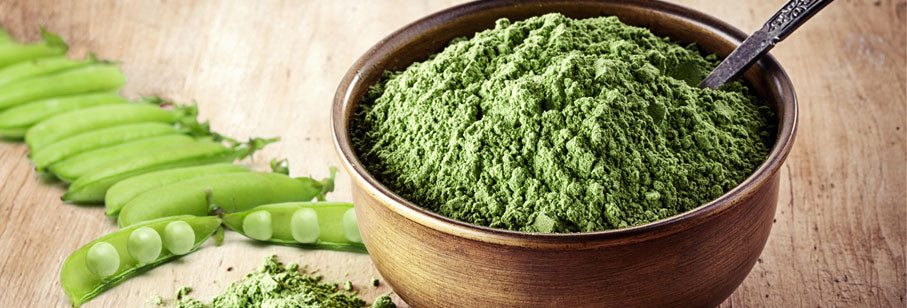If you or someone you know follows a vegetarian or vegan diet, then you have probably heard the following question once or twice: “But…where do you get your protein from?” The word protein is so heavily associated with animal products such as steak, chicken, and seafood that this question really isn’t as off the wall as one may think. Another probable reason for this frequent question is the understanding that most plant-based protein sources are “incomplete,” so the thought is that adequate protein amounts can’t be achieved if a person turns solely to plant sources for their nutrition.
The Truth
The truth is that for the average person, a plant-based diet definitely can supply the necessary protein amounts she needs. But what about athletes? Would an athlete be able to get adequate amounts of protein if she decided to switch over to a plant-based diet? The answer is a definitive yes! In fact, tennis superstar Venus Williams, Pro female bodybuilder Jehina Malik, and elite marathon runner Fiona Oakes are all at the top of their game and are just a few of the numerous other athletes, male and female, who follow a vegan lifestyle.
Do Plant Protein Digest Differently?
There are, however, a few things one would want to take into consideration prior to trying to go vegan without the proper guidance. For example, plant-based proteins and animal-based proteins digest differently and in fact, according to researcher David Rogerson, “the digestibility of plant-based protein appears to be markedly less than that of animal products.” As this is the case, the International Society of Sports Nutrition (ISSN) recommends that vegetarian (and certainly vegan athletes) need to consume more protein than their omnivorous counterparts. The general recommendation for protein intake for athletes is 1.2-1.4 g/kg per day while vegetarian/vegan athletes are advised by the ISSN to aim for an intake of up to 2.0 g/kg per day.
Is the Energy Intake different?
Another fact about plant-based protein sources the vegetarian/vegan athlete may need to take into consideration is the possibility that it may be difficult to keep a high energy intake, much less adequate protein intake, given the fact that most plant-based sources of protein contain a lot of fiber and as such, lead to satiety quicker. It may be very beneficial, then, for this athlete demographic to consume protein supplements such as powders or ready-to-drinks in order to ensure they are keeping their overall energy intake high enough, as well as their protein intake closer to those recommended by the ISSN. Those vegan/vegetarian athletes who are focused on muscle hypertrophy may also benefit from protein supplementation as leucine, the “key” to stimulating muscle protein synthesis, is not as abundant in plant-sources as it is in whey sources. (3)
Supplement with Lysine
The vegetarian/vegan athlete also needs to understand that the essential amino acid, lysine, is the limiting amino acid (the amino acid in the shortest supply in relation to need) of most plant-based foods. Lysine is essential to collagen production, and it also plays a role in the absorption of calcium to name just two of its roles in the human body. Jack Norris RD, a plant-based expert and co-author of the book Vegan for Life, notes that it may be more important for a vegetarian/vegan to focus on her total intake of lysine as opposed to total protein amounts since if adequate lysine is being consumed, it’s likely that overall protein needs are also being met. Luckily, it’s rather simple to get enough lysine if the athlete is consuming legumes such as beans, peas, and lentils. If she prefers not to eat legumes, then a protein supplement that has as one of its primary ingredients pea protein is just as beneficial.
Does Plant Protein Lack Any Vitamins?
Finally, vegetarians/vegans need to be aware that while most of their micronutrient needs can be met on a plant-based diet, there are two important micronutrients that are not present in plants: Vitamins B12 and D. B12 can be found in some vegan sources such as plant-based milks and cereals that are fortified with it, or nutritional yeast. Another claim is that fermented foods, spirulina, certain mushrooms, and sea vegetables, just to name a few, can supply adequate B12. However, Julieanna Hever, MS, RD, CPT notes that fortified foods are not dependable when it comes to achieving adequate amounts of B12, and the other foods mentioned do not contain the biologically active form of the vitamin.
Vitamin D (which is actually a prohormone) is known as the “sunshine vitamin” because we actually get it from the sun. It is produced in our skin upon exposure to the UVB rays of the sun, and then activated by the liver and kidneys. (4) It’s important to note that Vitamin D deficiency is also an issue among omnivores, since it is not widely available in our food supply. However, omnivores can get some Vitamin D from animal liver, oily fish, egg yolks, and red meat, products not part of a vegan diet and depending on the type of vegetarian one is, they are often absent in vegetarian diets as well. As this is the case, Hever recommends a Vitamin D supplement be taken under a doctor’s supervision. Other microminerals that may be deficient in a plant-based diet are calcium, iron, iodine, and zinc. Therefore, it’s important that if one is thinking of adopting a plant-based lifestyle, she should seek the advice of a qualified nutritionist to make sure all of her needs are met.
The Bottom Line…
Plant-based diets are becoming more and more mainstream. The health benefits that are associated with them are indisputable: reduction of hypertension, inflammation, certain cancers, and diabetes type II to name a few. So if you are considering a plant-based diet, feel confident that you are able to make the switch without hindering your athletic performance, as long as you making sure your diet is well-balanced and fits your specific nutritional needs.
Please Let Us Know If You Enjoyed This Article.
Your Feedback Is Important To Us
Disclaimer: This content is for informational purposes only and is not meant as medical advice, nor is it to diagnose or treat any medical condition. Please consult your physician before starting or changing your diet or exercise program. Any use of this information is at the sole discretion and responsibility of the user.













